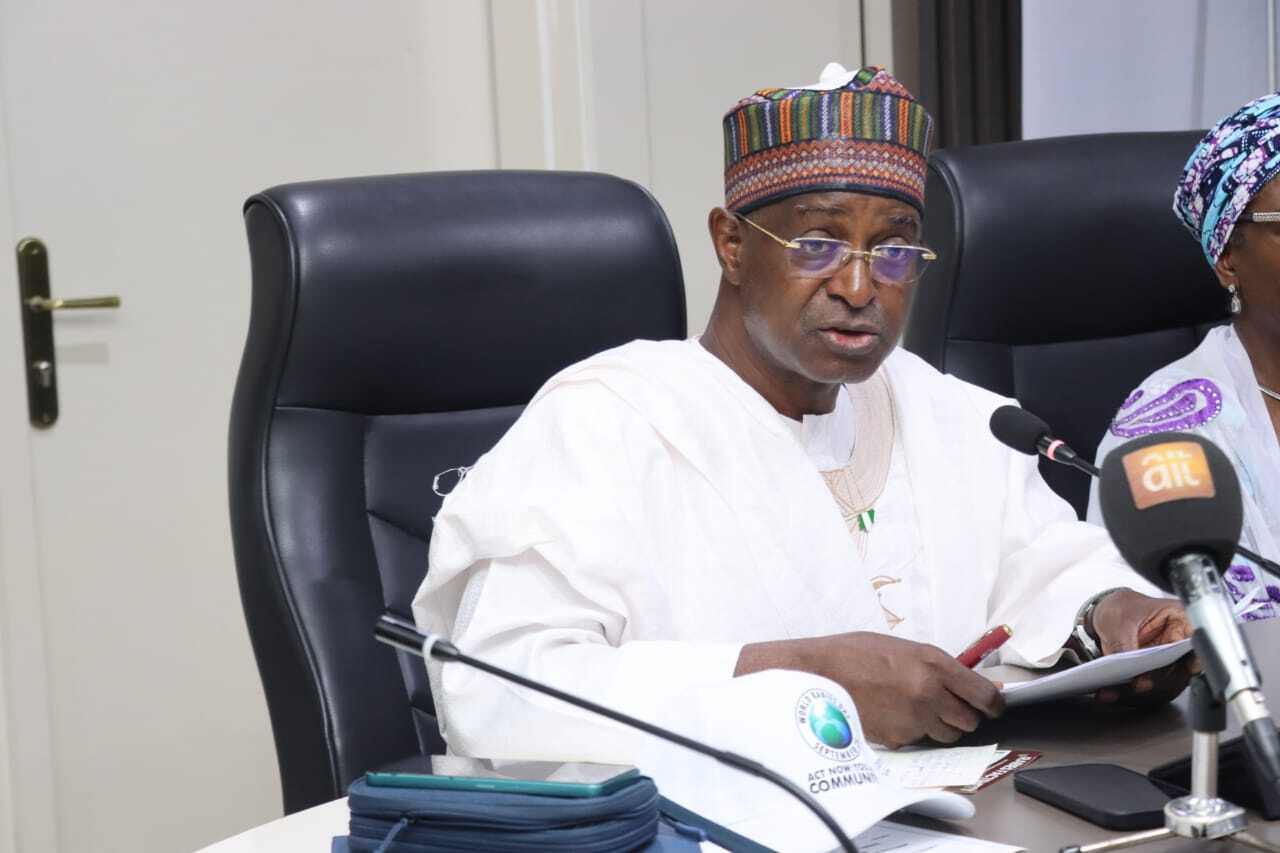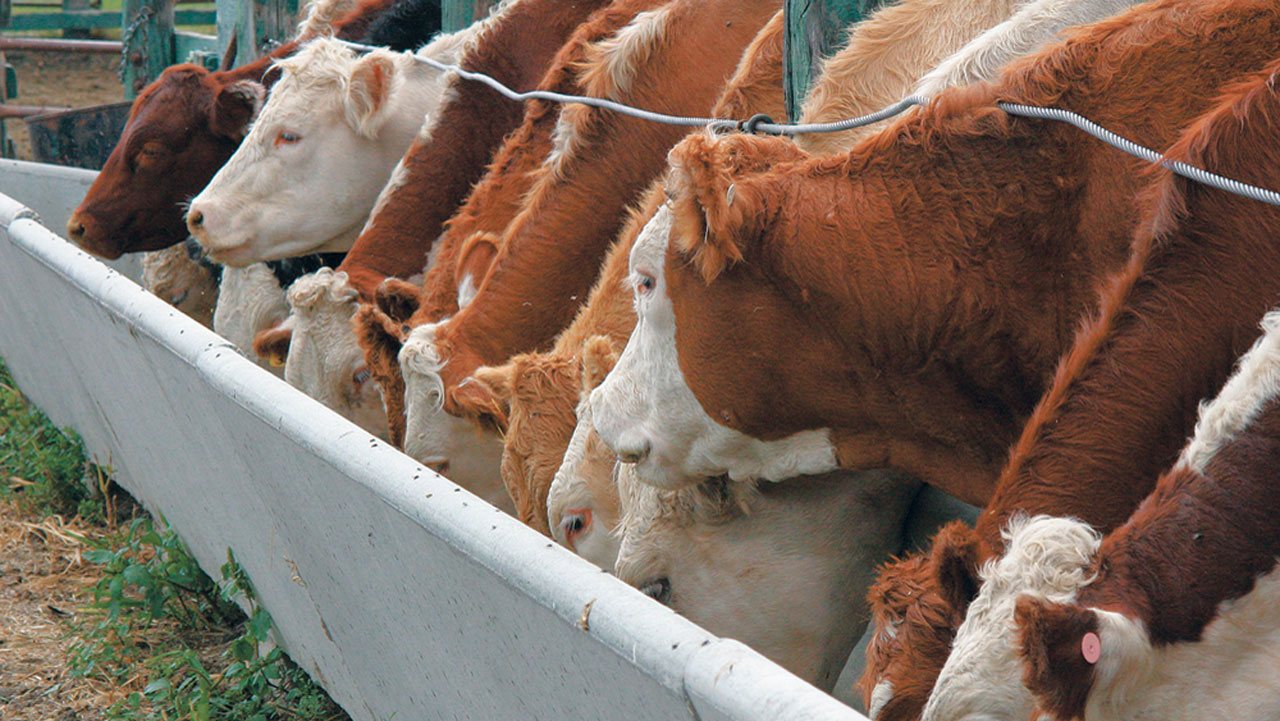With a total agricultural land area of about 70.8 million hectares, and arable land estimated at 36.87 million hectares, Nigeria is considered capable of producing enough for the populace.
But despite these vast resources, the country is yet to be self-sufficient in food production, depending on imports, estimated at over $10b yearly to bridge the huge food deficit gap.
At every fora, the Federal Government had always expressed fears that Nigeria’s population may hit about 400,000 by 2050, hence the need to come up with innovations to boost food production as against dependence on import.
One of the major problems identified by experts and other stakeholders as contributing factor to this lingering issue is the problem of sustainable soil health, which according to them greatly impacts farmers’ yields. It is based on this reality, that the International Fertiliser Development Center (IFDC) underscored the importance of soil as a key element to global food security.
The IFDC Country Director, Yusuf Dramani, who revealed that Nigeria cannot achieve food security without a sustainable soil health, hinted that soil health goes beyond application of fertiliser to boost soil fertility.
While equating soil health to human being, he said: “staying healthy goes beyond taking drugs, but there is need for eating well, exercise the body among other things to be healthy. So also, the soil must be healthy to withstand stress as it continues to sustain productivity.”
He narrated how IFDC has put “from soil-to-fork” principle into practice under three points, which ranges from the production of the IFDC value-chain compass, to maintenance of healthy soils, resulting in productive farms and then ensuring inclusive markets.
To ensure healthy soils – mapping, matching and managing nutrients, The Guardian learnt that in December 2024, IFDC released a high-resolution digital soil maps for West Africa and the Sahel, thereby providing government, and private blenders crop- and site-specific nutrient data.
Dramani disclosed that these maps are already being used to design micronutrient-enriched fertiliser blends for Nigeria, Ghana and Mali, adding that under its Soils Space to Place (S2SP) programme, it has converted those maps into localised fertiliser recommendations, with agro-dealers trained to translate lab results for farmers.
The Country Director stressed that under its Fertiliser Deep Placement (FDP) programme, which is a mechanised FDP technology that places urea/NPK+Zn+S briquettes 5–6 cm below the surface; trials across West Africa has led to a 30 per cent rice yield gains, while cutting urea use by 20 per cent and reducing N₂O losses.
With the soil to supermarket vision of the organisation, it was learnt that soil intelligence is now digital, geo-referenced and accessible to local blenders as farmers are beginning to adopt the right products and practices at meaningful scale (hundreds of thousands each year).
While highlighting the number of farmers trained so far, Dramani said in 2020, IFDC trained about 260,000 farmers, including women, across 30 countries. According to their report, farmers reached directly in 2023 on seed and GAP campaigns were about 46,547 and about 86,320 indirectly. For the TRIMING (Nigeria) smallholders using IFDC technologies reached about 45 771, specialising in rice, tomato, onion, maize farming.
While the HortiNigeria project target about 60,000 smallholder farmers made up of 40 per cent women and 50 percent youths. The project also currently have about 15 000 ha under eco-efficient practices.
On the yield and income effect of the project, he said the gains across the programme range from 15 – 35 per cent yield increase in rice, maize, tomato, onion and 20 – 40 per cent increases in net income. The claims, according to him had been corroborated by partner monitoring and external evaluations.
To enhance inclusive markets – from farm gate to supermarket shelf, he disclosed that IFDC implemented 2SCALE business incubator. The phase two, from 2019-2023, ran 60 public-private partnerships (PPPs) that integrated smallholders into staple, dairy, oil-seed and fresh-produce chains.
He disclosed that the project leveraged about €162.8m in private co-investment on top of a €62m Discretionary Grant Information System (DGIS) grant, and now serves roughly 750 000 smallholder farmers and base-of-pyramid consumers in 40 low-income markets.
Under the 2SCALE Nigeria clusters, reports have it that the IFDC has facilitated partnerships with Tomato Jos, Arla, and Olam to mainstream inclusive procurement contracts to supply tomatoes, dairy and sesame into national supermarket chains and quick-Service-restaurants.
For the HortiNigeria project, the Country Director said the project has organised 2,000 entrepreneurial farmers and 67 agro-dealers into aggregation hubs, supplying processors and modern retailers, with incremental yearly vegetable sales valued at €9.7m.
On Policy and quality assurance, Dramani said IFDC has co-facilitated the ECOWAS Regional Committee on Fertiliser Quality, aligning 15 countries on standards and inspection protocols that curb adulteration and build consumer trust in the final food product.
“Depending on how you treat your soil and the knowledge you have, you can produce a lot on a little portion of land using good agronomy practice. IFDC has been encouraging adoption of eco-efficient technologies, this kind of technology is very mindful of the environment, which means a proper application of your fertiliser, introducing organic fertiliser as well.
“We are working with the fertiliser producers and blenders to ensure that the fertilisers they come out with are good ones. Super good fertilisers that do not actually stress the soil and to also ensure that the fertilisers being produced.”
SINCE inception in 2001, IFDC has made tremendous progress in scaling up adoption of new innovations among farmers. For instance under its Digital Soil Intelligence & Site-specific Blending (SOILS-Space to Place) project, about 432 000 farmers are already applying good agronomic practices that incorporate site-specific advice, with the target of reaching four to five million people, with tailored recommendations by 2027.
Under the Fertiliser Deep/Urea Deep Placement (FDP/UDP) being implemented as the TRIMING project in Nigeria, about 45 771 farmers are already using FDP on rice, tomato, onion and maize since 2022, while the HortiNigeria project that promotes balanced, micronutrient-fortified NPK blends about 60 000 vegetable farmers (40% women, 50% youth) already purchasing or receiving the new blends and 15 000ha under eco-efficient practice.
Another new innovation being pioneered by IFDC is the Organo-Mineral Fertilisers (OMFs), which involves co-granulating mineral NPK with composted manure, crop residues or agro-industrial waste to close nutrient loops and cut CO₂ intensity. A documented adoption by smallholder farmers shows that in 2024 regional pilots reached 30 farmer groups; and survey shows 95 per cent of the country teams report farmer interest, and large blenders in Nigeria and Ghana are testing first commercial runs.
For the inclusive agribusiness PPPs (2SCALE), HortiNigeria, Soil-to-Shelf clusters, about 1.1 million farmers under the 2SCALE programme in 2023 were integrated into 60 commodity partnerships supplying formal processors and supermarkets. He, however mentioned that the rate of adoption of the innovation is dependent on those who have demonstrably used the technology and not necessarily radio listeners or social-media followers.
Dramani noted that through the Farmers Business School, farmers knowledge is being improved to be able to produce in the best possible way to boost productivity. He said: “What we’ve known and has worked well, is that when farmers know why and how something is done, they will adopt it. So, that has really increased adoption and then improved productivity across most of the states.”
Dramani stressed that since inception, IFDC has worked virtually in all the 36 states and the FCT, adding that they have implemented programmes for almost all the value chains in Nigeria including rice, maize, millet, sorghum, cassava, as well as created market access for farmers.
The Country Director said IFDC has been pioneering the adoption of micro dosing technology to reduce the amount of fertilisers being used and still get a higher result. “So the micro-dosing technology is where you apply exactly the amount of fertiliser the plant needs beside the crop, and not just broadcast and waste the input anyhow.
“So it’s a measure. If you are talking about maize, you determine how much that maize needs how much fertiliser that maize needs, and apply exactly. Is it based on the size of the land or based on the amount of nutrients the crop needs,” he stated.
Dramani said that is why the organisation is working with the quality assurance department in the Federal Ministry of Agriculture and Food Security, and blenders to ensure that the fertilisers in the system are good.
He mentioned that while the blenders they are working with try as much as possible to produce quality fertilisers, there are unscrupulous people who re-bag these fertilisers with adulterated ones and sell it as original.
To conduct soil test, Dramani said soil samples can be taken to any soil laboratory spread across the country including some blending plants, Universities Center for Dry Land Agriculture in Kano, ABU in Zaria, Federal University of Agriculture, among others, at a very low rate
He disclosed that soil test can also be conducted on the farm by using litmus paper to know the soil acidity level and also know if it is nutrient deficiency or nutrient content of the soil, you can have that. “But the best one has been where you carry your samples and then submit to the labs. And the labs analyse for you.
“Improve yield is not just about soil and fertiliser but also soil moisture. When there are no adequate rainfalls, the irrigation system has to be improved. Quality seed is also important to have high yield. “So all these three have to be in tandem, put together to make sure that the farmer gets more yield, gets profit, and continues to be in business,” he stated.
Continuing, he said: “When you go to a lot of places where we work, and you see how farmers are really making money, busy, you can really know that these farmers now understand. They are different from the farmers we knew some years ago.
“The time where farmers see agriculture as just farming to feed the family is gone. Now, the farmers must see it as a business, and that’s what we’ve been encouraging. And it’s good to know that a lot of farmers see farming now as business,” he stated.
He mentioned that IFDC has been promoting these innovations in the places where they work, including Kaduna, Kano, Sokoto, Jigawa, Gombe, Adamawa, Borono, Oyo, Ogun and other states.
Dramani stressed the need for government to finance the surveillance of the fertiliser market so that no one can influence them, to overlook certain things so that they can be fair.
He highlighted some of their future plans to include to further lower the cost of balanced fertilisers through regional production of micronutrient carriers, and to expand the digital traceability from fertiliser bag to supermarket barcode, as well as Climate-proofing nutrient recommendations as rainfall patterns shift.






